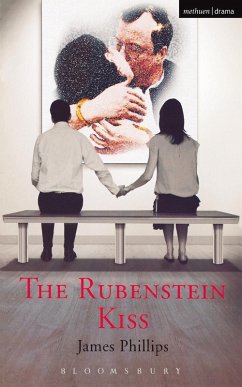A remarkable new play about Cold-War betrayal and the quest for justice
1953. In McCarthy's America, Jakob and Esther Rubenstein are betrayed and punished for an act of industrial espionage. Could this be the greatest miscarriage of justice of the twentieth century?
1975. New York. Matthew Maddison meets Anna Levi in front of an art gallery photograph of Jakob and Esther sharing one final kiss before they part. Young, radical and falling in love, together they seek justice for the past.
Inspired by a true story, The Rubenstein Kiss explores the mysterious corridors of history to reveal the anguish of a family and a quest for atonement.
Publication coincides with the play's premiere at London's Hampstead Theatre on 17 November 2005.
'a commendably assured first play ... vividly captures the interlocking nature of sexual and ideological passion' Guardian
'This is a bracingly ambitious piece, encompassing the tension between personal and political morality, between idealism and pragmatism, and the power of the past to shape individuals. Astutely and compassionately, Phillips explores each bend in the road that led to the Rubensteins' deaths ... A stimulating debut work of real scope.' The Times
1953. In McCarthy's America, Jakob and Esther Rubenstein are betrayed and punished for an act of industrial espionage. Could this be the greatest miscarriage of justice of the twentieth century?
1975. New York. Matthew Maddison meets Anna Levi in front of an art gallery photograph of Jakob and Esther sharing one final kiss before they part. Young, radical and falling in love, together they seek justice for the past.
Inspired by a true story, The Rubenstein Kiss explores the mysterious corridors of history to reveal the anguish of a family and a quest for atonement.
Publication coincides with the play's premiere at London's Hampstead Theatre on 17 November 2005.
'a commendably assured first play ... vividly captures the interlocking nature of sexual and ideological passion' Guardian
'This is a bracingly ambitious piece, encompassing the tension between personal and political morality, between idealism and pragmatism, and the power of the past to shape individuals. Astutely and compassionately, Phillips explores each bend in the road that led to the Rubensteins' deaths ... A stimulating debut work of real scope.' The Times









